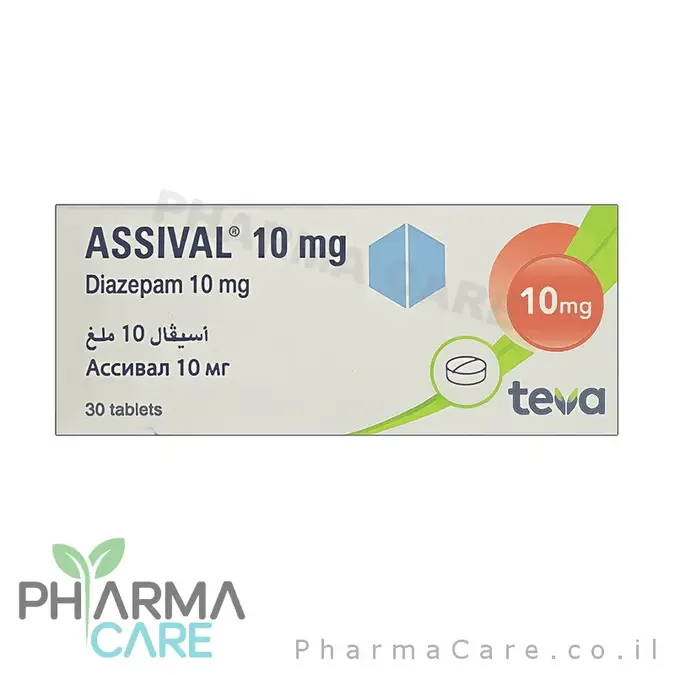ישנם אנשים החווים חוסר נוחות או אף חשש מנטילת תרופות שינה הדורשות מרשם רופא. לפיכך, צמחה בעשור האחרון דרישה הולכת וגוברת למוצרים אלו, לצד תרופות רלוונטיות שעשויות לעזור במצבים מסוימים. חלק מאותם מוצרים טבעיים, בעוד שאחרים הם תרופות מוכרות, אך במינונים שניתן לעתים להשיג בתנאים שונים.
In the following article, we will review a number of recommended products that can help improve sleep, address some complementary methods that can strengthen the effect, and delve deeper into understanding the correct way to approach the problem of insomnia.
כדורי שינה?
אנשים רבים בעולם המודרני מתמודדים עם עומס מטלות, לחץ בעבודה, אחריות משפחתית ושינויים תכופים באורח החיים. כל אלה עשויים לגרום למתח מצטבר הפוגע באיכות השינה. לכן, חיפוש אחר כדורי שינה מומלצים הפך נפוץ.
Among the main reasons for this:
- Availability and accessibility: Various products can be purchased at pharmacies or online without having to wait for an appointment with a doctor.
- Fear of serious side effects: Some people shy away from strong prescription medications, and therefore seek gentler alternatives.
- Desire to control the sleep process: Some people want to try to deal with insomnia on their own before seeking intensive medical treatment.
עם זאת, כדאי לזכור שגם בכדורי שינה, וכן בתרופות נפוצות לשינה, קיימות התוויות, אפשרות לתופעות לוואי, ואף לעתים חובת התאמה אישית.
תרופות וכדורים מומלצים לשינה
חשוב להדגיש שחלק מהשמות שיוצגו כאן מוכרים כתרופות מרשם במדינות מסוימות, בעוד שבחלק מהמקומות הן עשויות להימכר במינון מופחת. גם אם קיים הבדל ברגולציה, נהוג להתייחס אליהן בקבוצת “כדורי שינה מומלצים”. בכל מקרה, לפני התחלת שימוש רצוי להתייעץ עם גורם מקצועי (רופא או רוקח) כדי להבטיח התאמה אישית נכונה.
We will avoid mentioning dosages and prices, and will keep the emphasis on the general qualities and characteristics of each preparation or medicine.
Nocturne It is a well-known product on the market that helps improve sleep quality and reduce awakenings in the middle of the night. People report that it helps them fall asleep relatively quickly. The pill is designed to relieve situations where thoughts are disturbing and hinder falling asleep.
Combining Nocturno with a regular sleep routine allows for better results. Therefore, experts recommend reducing stimuli (TV, smartphone) before bed when taking the product.
Ambien (Ambien) הוא שם מוכר בשוק של תרופות שינה, וקיימים לו כמה מינונים שונים. בחלק מהמקומות ניתן להשיג אמביאן במינונים מסוימים, אם כי לא תמיד. הוא פועל לרוב תוך זמן קצר.
Many people choose it when they need help falling asleep quickly. However, as with any sleep aid or medication, it is worth paying attention to the effects the next morning. Some people may feel a little tired.
Cirquel (Seroquel) is best known as a prescription medication for various mental health conditions. However, some people use it in relatively low doses to help with sleep. It may contribute to a general sense of calm.
חשוב לציין שלעיתים אנשים מדווחים על המלצה של רופא ליטול אותו בתקופות קצרות של הפרעות שינה. בכל מקרה, יש לבדוק את ההתאמה האישית ואת הרקע הרפואי.
Stilnox It is also a preparation that is known throughout the world and is used to induce sleep. It acts relatively quickly, so it can be suitable for those who have great difficulty falling asleep. Many users report that it also relieves frequent awakenings at night, although its main effect is aimed at calming the brain before falling asleep.
Anyone considering using Stilnox is advised to ensure an environment free of distractions about 30 minutes before going to bed.
Zodrom It is somewhat similar to the other preparations mentioned above, and helps you fall asleep relatively quickly. It is considered quite common among those looking for an effective solution for transient insomnia.
It is also recommended not to take it for extended periods of time, but to treat it as a spot-on help as needed. In any case, it is advisable to adapt its use to an appropriate medical recommendation.
Bondermin
Bondermin מופיע לא פעם ברשימות של כדורי שינה מומלצים, וזאת בשל העובדה שבמינונים מסוימים הוא נמכר לעיתים ללא צורך ברופא. יחד עם זאת, בהחלט כדאי לבדוק את הצורך הרפואי האמיתי.
Based on user reviews, Bondermin may contribute to a more natural feeling of fatigue, but it should be used correctly, and not long-term.
Imoben (Imovan) is used by many who deal with temporary sleep disorders or difficulty falling asleep at night. Like other preparations, it is not intended to replace healthy habits or full medical treatment. On the other hand, it provides an effective solution for specific needs, and helps to fall asleep faster.
טיפים לשימוש נבון בכדורי שינה
כדורי שינה מומלצים (או עם מרשם, בהתאם למקרה) יכולים להועיל מאוד, אך הם רק חלק מתמונה כוללת. כדי להפיק את המיטב ולצמצם תופעות לוואי, כדאי לשים לב לכמה כללים:
- Taking at the appropriate time
Most pills are more effective when taken close to bedtime, reducing the risk of fatigue the next day.
- Avoiding increasing the dosage on your own
Even if a product seems “safe,” do not increase the dosage without consulting a pharmacist or doctor.
- Tracking personal influence
Listen to your body. If you feel excessively heavy in the morning, consult about reducing the dosage.
- Avoiding alcohol
Combining alcohol and sleeping pills can put you at risk, as alcohol may enhance the effect of the pill.
- Combination with sleep hygiene
It is worth creating a calm environment: a quiet room, a comfortable temperature, turning off bright lights and disconnecting from electronic devices.
- Weighing the duration of use
Many doctors recommend not to extend continuous use, so as not to develop mental dependence or physical adaptation that could reduce the effectiveness of the pill over time.
The importance of natural ingredients and herbal formulas
In addition to the medications mentioned (such as Nocturno, Ambien, Cirquel, Stilnox, Zodrom, Bondermin, and Imoben), there are herbal products. They are sometimes sold as dietary supplements or as natural products without a prescription.
Common components:
- Valerian: A common plant with the ability to calm the nervous system, recommended for mild mental stress.
- Passionflower: Considered to have a calming effect and helps reduce moderate anxiety.
- Melissa (Lemon Balm)Melissa leaves have a delicate lemony scent and help reduce stress.
- Chamomile: Commonly used as a plant for making a soothing tea, it has properties that contribute to restful sleep.
Many herbal products are sold over-the-counter, but it's still worth checking for individual suitability, especially if you're taking other medications.
כיצד לבחור כדור שינה שמתאים דווקא לכם?
Choosing the right pill (or preparation) depends on a variety of personal and medical aspects. Here are some questions to ask yourself:
- What is the cause of sleep difficulties?
If the cause is temporary stress (e.g., exams or a specific crisis), a natural product that is not too strong may be preferable. If it is a long-term disorder, it is worth consulting a doctor and deciding on a more complex pharmaceutical solution (e.g., Cirquel or other preparations in an adjusted dosage).
- How long did the difficulty falling asleep last?
If you have trouble falling asleep for half an hour or an hour each night, a fast-acting pill like Ambien or Stilnox may be appropriate. If the difficulty is mainly with repeated awakenings, a longer-acting formula is sometimes recommended.
- Do you suffer from other medical problems?
Some sleeping pills may not be suitable for those who suffer from heart problems, clinical depression, or other conditions. In such cases, it is important to consult a doctor.
- Is there a sensitivity to certain substances?
If you are sensitive to certain active ingredients, it is best to look into herbal alternatives or other medications.
- How much are you willing to invest in changing habits?
Sometimes it is useful to combine sleeping pills with improving sleep hygiene. If you are not willing to change your habits, the medication may not provide a complete solution.
Complementary solutions to improve sleep
כדורי שינה מומלצים, כמו גם התכשירים שהוזכרו עד כה, הם רק חלק אחד מן הפתרון. כדאי לחזק אותם באמצעות שינויים קטנים אך משמעותיים בסביבה ובהרגלים.
- Relaxation and breathing techniques
- Practice deep breathing for 5–10 minutes before bed.
- Short meditations focused on muscle relaxation.
- Listening to soothing music or “white noise.”
- Moderate physical activity
A short evening walk or light yoga activity may contribute to releasing stress and improving sleep quality.
- Avoiding heavy late meals
Eating heavily near bedtime may burden the digestive system and interfere with uninterrupted sleep.
- Reducing screen use
Blue light from screens affects melatonin secretion. Try turning off your phone, computer, and TV at least half an hour before bed.
- Keeping a dark and quiet bedroom
Background noise and lights from the street can be distracting, so blackout curtains or earplugs are sometimes very helpful.
התייחסות של מומחים ורופאים בתרופות
Sleep medicine experts emphasize that over-the-counter medications are not necessarily a long-term solution. In cases of chronic sleep disorders, it is necessary to diagnose the underlying problem. Sometimes, tests may be performed in a sleep laboratory, or a psychiatrist or psychologist specializing in cognitive behavioral therapy for sleep disorders (CBT-I) may be consulted.
When should you consider a sleep lab?
- When you snore loudly or experience pauses in breathing (sleep apnea).
- If you wake up at night with heavy sweating or an unexplained rapid heartbeat.
- When you suffer from a prolonged sleep problem, and no sleeping pill helps in the long run.
Is there a significant difference between natural products and prescription drugs?
Yes, prescription medications are usually based on stronger active ingredients and are intended to treat more severe sleep disorders. Natural or over-the-counter products tend to be milder, but are not always sufficient for every problem.
Transitions: When to stop and see a doctor?
אנשים רבים מתחילים בנטילת כדורי שינה (לעיתים במינון נמוך) בתקווה לראות שיפור מיידי. לעיתים זה אכן עוזר, אך חשוב לדעת מתי כדאי לעצור ולפנות לאיש מקצוע.
- If two weeks have passed and there is no relief: The pills may not be suitable or there may be a medical problem that requires more in-depth treatment.
- If new side effects appear: Such as severe dizziness, rash, difficulty breathing, or general loss of balance.
- If you start increasing your dose on your own: This is a warning sign. Increasing the dose should be monitored.
- If you have concerns about dependency: Some people develop a psychological dependence on the pill. If you feel like you can't fall asleep without it at all, it's a good idea to consult a doctor or a psychologist who specializes in sleep.
שאלות נפוצות בתרופות (FAQ)
האם אפשר לשלב כמה סוגי כדורי שינה במקביל?
In principle, combining different medications may cause unwanted interactions. Therefore, it is not recommended to combine several types at the same time without consulting a doctor or pharmacist. It is better to choose one suitable medication and focus on it for a certain period of time.
האם כדורי שינה מומלצים מתאימים לכל גיל?
Most pills are intended for adults. Children and teenagers who have trouble sleeping should seek appropriate medical attention, as the dosage and types are different for them. Adults over the age of 65 also sometimes require special dosage adjustments.
What is sleep hygiene and why is it important?
Sleep hygiene refers to the habits and physical and environmental conditions that affect sleep quality. Examples: turning off screens, avoiding noise and bright light, reducing caffeine in the late hours, and maintaining a consistent bedtime. Creating a sleep-supporting routine improves the effect of pills and may even replace them in the long run.
Can prolonged use cause dependence?
Yes, there is a certain risk of psychological dependence on some preparations, especially strong prescription drugs. Therefore, it is recommended to use sleeping pills for limited periods of time and to follow the manufacturer's and doctor's instructions.
Is it permissible to combine sleeping pills with nutritional supplements such as magnesium or vitamins?
In most cases, there is no contraindication to such a combination, but it is advisable to make sure that there are no specific contraindications. If you are taking a specific supplement (for example, magnesium in a special dose), it is advisable to consult a pharmacist about the combination.
The path to quality sleep begins with simple steps
כדורי שינה מומלצים הם כלי עזר יעיל במצבים של קושי להירדם או לישון רצוף, בייחוד עבור מי שעובר תקופה לחוצה או מעוניין בפתרון מהיר. בין אם אתם בוחרים נוקטורנו, אמביאן, סירקואל, סטילנוקס, זודרום, בונדרמין או אימובן — העיקר הוא להשתמש בהם בצורה מושכלת.
Remember to combine use with strict sleep hygiene and general reinforcement of healthy habits. Sometimes, even turning off screens early and practicing breathing exercises can significantly improve the quality of your sleep.
In any case of doubt or the appearance of side effects, stop and consult. Experts recommend undergoing an in-depth diagnosis if the problem persists, because sleep is an essential part of our lives and investing in it pays off in the form of physical and mental health.
Good luck in improving your sleep quality!














